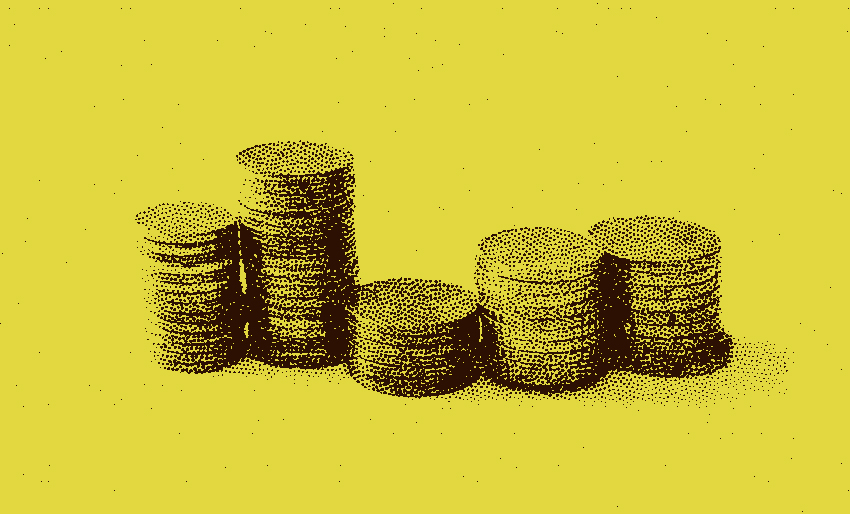Paying Off Your Student Loan Debt
Feeling swamped by your student loans? Looking forward to the day when you’ve finally paid them off? You’re not alone. As of 2020, there are over 45 million student loan borrowers in the U.S. carrying a combined $1.6 trillion of debt. Yikes.
But that doesn’t mean you can’t be the master of your own debt destiny!
Here’s what we cover in this guide
Getting organized
Creating a plan
Getting help with your payments
Refinancing
Consolidating
Paying down ahead of schedule
Start by getting organized
If you want to create a plan for the future, you need to know where you stand today. So organize all of your student loans in a list or a spreadsheet and write down the key information, like lender names, loan balances, interest rates, and required monthly payments.
This will help you compare multiple loans and see what it will take to pay them off.
And yes, we know it may not be pleasant to stare into the dark void of looming debt payments. But facing your debts head on will make it easier to visualize your goal.
Creating your plan
Now that you’ve laid out your objective, it’s time to develop a plan for reaching it. Take a look at your monthly payments. How do these stack up with your income and your spending?
A. Not so bad?
B. Kind of scary?
C. Completely hopeless?
Wherever you stand, remain calm. No debt mountain is too big to overcome.
In a perfect world, you’d be able to make your monthly debt payments and still have enough money left over to put towards your other long-term goals. But in reality, that can challenging, especially if you’re young and earning a fairly modest income. Over time (and as you pay down your loans) you’ll have more money left for your other financial goals like saving for retirement. But your main financial priority now might be to pay off your loans, and that’s okay.
But you’re not off the hook entirely. You should still be looking for ways to cut other expenses wherever you can and/or find ways to earn extra cash. The more you can put towards your student loans and other financial goals, the less you’ll be paying in interest. And the faster your wealth will grow. Working with a budget, even a simple one, can help.
What if I’m having trouble making the minimum payments?
Hey, we get it. This obviously isn’t the ideal situation, but it does happen. So you should know that you do have some options if you’re really stuck.
First off, DON’T be tempted to skip your payments
This is a bad idea. Like seriously bad idea. For starters it will hurt your credit, making it even harder and more expensive to borrow money in the future. But even more serious is the wrath you’ll face from Uncle Sam. The government has more power than a typical lender. Which means they can do things that other lenders can’t, like seize your tax refund or even garnish your salary, meaning they’ll take money directly from your paycheck. Not a situation you want to be in. You also can’t eliminate your student loans in bankruptcy either. So skipping your payments is not a solution.
Your lender may be willing to work with you
Okay, we’ve established skipping your payments is a bad idea. But you may be able to lower your payments in other ways. For one, if you’re really feeling stuck, you can reach out to your lender(s) to see if they’re willing to work with you. They might be, they might not be. But it doesn’t hurt to ask, especially if you’re feeling financial pressure.
Also, federal student loans have some features that may help your situation, like forbearance and deferment, income-driven repayment plans, and loan forgiveness programs.
Sounds like complicated gibberish? Then let’s get to them!
• Forbearance and Deferment
Forbearance and deferment are two ways you may be able to put your debt payments on hold without hurting your credit. With deferment, you need to qualify based on specific criteria, like losing your job, facing extreme financial hardship, or going back to school. If you don’t qualify for deferment, you may still be able to qualify for forbearance, which will be at the discretion of your lender. You’ll need to contact your loan servicer to see if you qualify for either.
The idea behind both of these options is to give you a breather from your monthly loan payments, allowing you time to find a job, go back to school, or get your financial issues in order. However, neither one is a permanent cure to your debt problems. You’ll still need to pay your loans eventually and you’ll most likely be accruing interest even while your payments are on pause. This means you’ll be on the hook for even more money when you start making payments again.
• Income-driven repayment plans and loan forgiveness
The government offers multiple repayment options on federal student loans, and some of them are based on your income. The idea is that if you’re working but simply not earning enough to support your debt payments, you can qualify for lower payments.
Typically your payments will be based on a percentage of your discretionary income, roughly ranging from 10-20%. Keep in mind, your debt will likely be extended with this option. And even though you’re making smaller payments now, the total amount you end up paying could increase. However, you may also be eligible for loan forgiveness if you continue to qualify for an income-driven plan and work in certain non-profit jobs.
You can check out more details on all of these on the Federal Student Aid website operated by the Department of Education.
Refinancing to lower your payments
Refinancing might be another way to lower your loan payments. The basic idea is to replace your existing debt with new debt at a lower interest rate.
To quality for refinancing, you’ll typically need either
• Stable income and good credit, or
• A co-signer with good credit
When does refinancing make sense? Basically if you can negotiate a lower interest rate because your financial situation has improved or if interest rates have gone down in general.
However, you need to be aware that federal student loans can’t be refinanced with new federal loans, only with private loans. This means the federal loan benefits we mentioned above (forbearance, deferment, income-driven repayment plans, loan forgiveness programs) will be lost when you refinance, and the change is permanent. And given the attractive rates on most federal loans, you’ll most likely be considering your private loans only when it comes to refinancing.
► If you want to learn more about refinancing, we have you covered.
Combining your loans through consolidation
When we talk more generally about debt consolidation, it refers to combining multiple loans into one. So you’re essentially refinancing your existing loans into a new single loan.
But when it comes to student loans, the term consolidation refers to something very specific – combining your federally guaranteed student loans into a Direct Consolidation Loan. And unlike more general consolidation, there’s no fee to apply for a Direct Consolidation Loan.
So why would you bother to consolidate?
Well, if you have multiple federal loans and find it difficult to keep track of all your payments, consolidating can simplify the process. But keep in mind, you’re not actually reducing how much debt you’re on the hook for. When you consolidate, the interest rate you pay will be based on a weighted average of your previous loans. So you’ll essentially be paying the same in interest.
You may have the option to extend your loan and reduce your monthly payments. But again, you’ll end up paying more in the long run.
Paying down your loans down ahead of schedule
Let’s say you’re fortunate enough to have some extra money in your bank account. You may want to pay your loans off ahead of schedule. After all, the faster you pay off your balances, the less you’ll pay in interest over the life of your loans.
But the decision will depend on your specific circumstances. And knowing when exactly you should use those extra funds to pay down your loans can be a little tricky.
Here are a couple other financial goals to consider;
Are you prepared for emergencies?
You’ll want to make sure you have at least some money in your dedicated emergency fund. We typically recommend having between 3 to 6 months’ worth of living expenses set aside. While it’s good to pay off your debts, once you have, that money is gone. And you can’t get it back if you’re faced with a financial emergency. So it’s usually a good idea to have at least some emergency savings on hand before you pay down your loan balances early.
Are you investing?
You should also consider whether it makes more sense to invest or pay down your debts. Investing may be a more attractive option in some circumstances, especially if your employer offers a 401(k) with a match. The match is like free money, so it’s usually a great idea to contribute enough to get the full match. Aside from that, you’ll want to consider whether you’re more likely to earn a higher return on your investments relative to what you’re paying in interest on your debt.
► If you’re interested in getting started investing, we can help.
If you do decide to pay your loans off early
Focus on your loans charging the highest interest rates since that will give you the most bang for your buck. And while some types of loans may charge a penalty for early payment, by law you can’t be charged a penalty for pre-paying your student loans ahead of schedule.
Keep at it
No matter where you stand with your student loans, remember, you WILL make progress if you stick with it. Have a plan, keep at it, and celebrate your milestones.
Over time, those payments you make will add up. And eventually you’ll be debt free and loving it.
What should we tackle next?
Learn more about refinancing student loans
How to start investing with a brokerage account or robo-advisor



